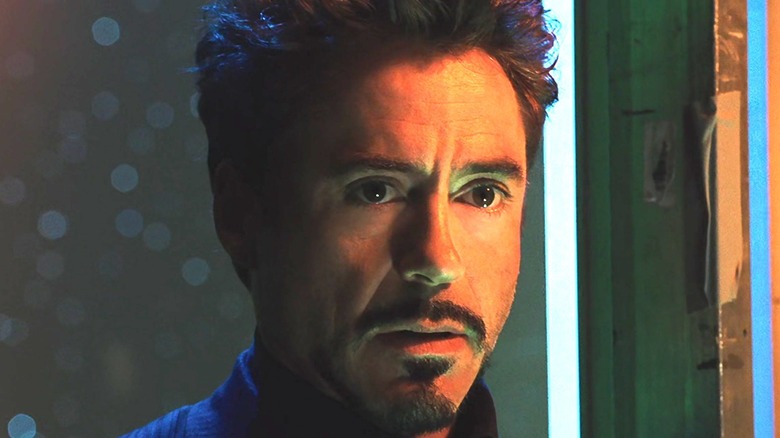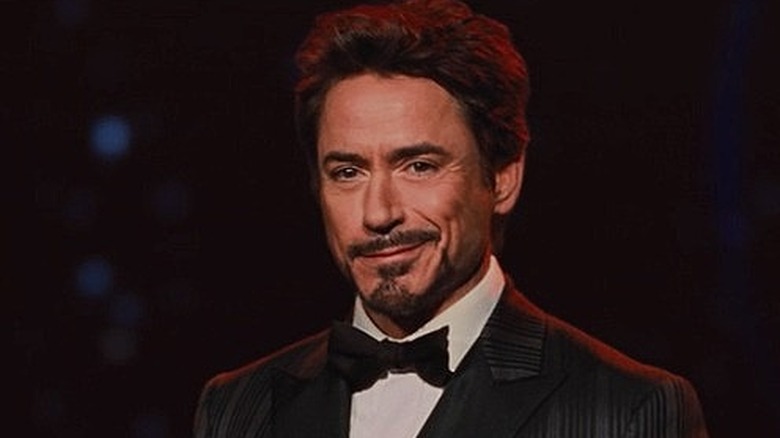How Iron Man 2 Changed The MCU For The Better
When Marvel Studios' "Iron Man 2" hit theaters in May 2010 (yes, that happened over a decade ago), its critical reviews contained little of the love-struck enthusiasm and praise that were showered on its predecessor. Roger Ebert said that while it "[got] the job done," it was "not as good as the original," and went on to focus much of his review on praising the actors' performances rather than the film as a whole. The New York Times' A.O. Scott came down a little harder on the follow-up, saying the film "[fulfilled] the basic requirements of the genre, which can be summed up as more of the same," and noting that it failed to "achieve the emotional complexity of 'Spider-Man 2' or the operatic grandeur of 'The Dark Knight.'"
The reviews weren't necessarily bad, but they contained an air of apathy and ambivalence that, as Tara Bennett and Paul Terry's "The Story of Marvel Studios" (via Goodreads) reveals, the then-fledgling MCU wasn't too keen on reliving. Per CBR's report, the book notes, "The lesson Marvel Studios took from their first sequel experience was simple but vital: Above everything else, always make sure there is a good creative reason to make a sequel." In addition to forcing Marvel to re-think the fast-tracking of sequels or their willingness to create a follow-up "just because," the second installment in the "Iron Man" saga contributed to the universe in other ways as well.
Iron Man 2 introduced important characters created a more fully-realized Tony Stark
As "The Story of Marvel Studios" book (via CBR's reporting) points out, not only did the film introduce audiences to Scarlett Johansson's Natasha Romanoff (aka Black Widow), it also went a long way toward creating a more fully-realized Tony Stark, by detailing his "family history, his complicated alliances, and his personal demons." Additionally, the book points out "the film gave rise to a sequel, 'Iron Man 3,' that received a warmer reception three years later — even while accounting for the controversy around the movie's infamous Mandarin twist."
Moreover, as its New York Times review pointed out, the film took what was, at the time, a fairly major risk — being funny — in a genre that had been "overtaken" by "solemnity." More than a decade later, Marvel audiences have become accustomed to the difficult balance between humor and high-stakes action that the MCU has managed to nail repeatedly in films like "Guardians of the Galaxy" and "Thor: Ragnarok."
Around the time "Iron Man 2" was released, however, Christopher Nolan's exceptionally dark takes on DC Comics' most complicated hero had come to define the genre. By leaning into Robert Downey Jr.'s ability to play Tony Stark as inexplicably likable, wry, and charming — while at the same time being a deeply flawed and potentially dangerous narcissist — director Jon Favreau's "Iron Man 2" injected a necessary levity into both the MCU and the genre on the whole. A levity that, one could argue, went a long way in distinguishing it from the joyless direction in which Warner Brothers took much of the DCEU following the success of Nolan's "Dark Knight" trilogy.

